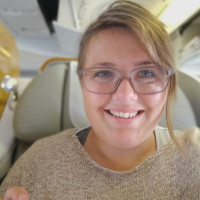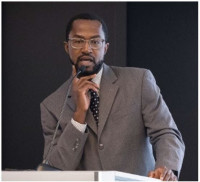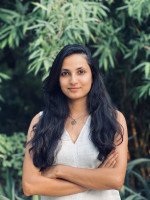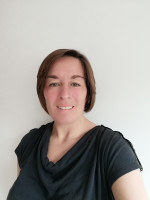Renewable Energy
Societal Challenges
Solar Energy
Wind Energy
Bioenergy, Hydrogen & Alternative Fuels
Social Justice & Equity
Post-Doctoral Fellowships
South Africa
2018.12.31
Developing clean energy in Sub-Saharan Africa: the importance of remote communities buy-in
We all have different expectations and needs. What some perceive as a positive step forward, might be viewed in a different light by others. This may seem obvious, but in the context of the implementation of public policies and energy projects into far-flung communities, this simple but crucial factor is often neglected. Modelling policies intended for one particular community on the perceptions and needs of another is an approach often doomed for failure. Social acceptance is a prerequisite for any successful public initiative. This is particularly true when it comes to climate mitigation strategies, as made evident by recent examples of public opposition to the deployment of renewable technologies in local areas. “Whereas ample research on community acceptance of clean energy technologies has been done in Europe and the United States, this topic remains largely unexplored in a developing context”, Dr. Jiska de Groot points out. Recognizing the obstacle this gap poses on the attainment of environmental and societal goals in Sub-Saharan Africa, the researcher from the University of Cape Town aims to investigate social acceptance of distributed clean energy in remote communities in this region. The overall objective of her project is to design strategies to equip policy makers and practitioners with the tools necessary to incorporate social acceptance in policy, project design and implementation.
“In Sub-Saharan Africa, remote areas are either without access to electricity or heavily diesel-dependent”, reports Dr. De Groot. “This is a barrier for local economic development, improving living standards and for reducing carbon emissions”. Distributed clean energy technologies, such as local renewable solar panels, wind, turbines, biomass, or biogas, for instance, have enormous potential to accelerate the energy transitions in these areas. But the question remains, are they appropriate in terms of economic and societal goals, or perceived positively? Are these communities willing and ready to take that leap, when energy sources have been historically scarce for them? Will it really be a vector or progress? “In developed economies like Western Europe, people might want to go off the grid, but we don’t know if people in remote communities want the same thing, insists Dr. De Groot. Before any important decision is made, we need to go and ask them, make sure they are willing to accept these technologies. We can’t assume what is best for people without asking them. Even when policies are well-meaning, they can often be ill-adapted. If this is the case, significant investments could end up being wasted”. “This is a topic that is close to my heart, she says. The idea of this research is not to find ready-made solutions for other people, but to find ways to help, so they can in turn help themselves”.
Including communities into the energy transition strategy choices that concern them
What the project proposes is to establish a dialogue with these communities, to identify strategies for including them in their own energy transition process, hereby limiting the risk of policy failure. To reach this goal, the project is running investigations in three different types of remote areas: far rural communities, ‘energy islands’ (informal areas that are under the grid), and island communities. More specifically, the case studies will be located in the following countries: The Democratic Republic of Congo, South Africa, Malawi and Sao Tome and Principe.
Dr. De Groot and her team will adopt a mixed-method approach in these local communities, including questionnaire survey, interviews, participatory workshops and the innovative Sensemaker method, a data collection tool that combines diverse types of narratives, such as videos, photos, audio recordings of people and how they experience a particular situation. To ensure the findings will not solely be the subject of a scientific paper, but also of policy briefs (a one pager intended for relevant stakeholders, such as members of local governments and energy providers) and knowledge sharing among stakeholders. To ensure maximum dissemination, the Sensemaker data will serve to create an exhibition to increase the general public’s awareness of the way remote communities live and the issues they face.
Just a few years ago, less-developed countries were considered financially unable to expand power generation with zero-carbon sources. Today, these countries are leading the charge when it comes to deployment, investment and policy innovation in clean energy. Research has a role to play in ensuring these ambitious energy transition strategies achieve their full potential. Considering the crucial issue of community acceptance of clean energy technologies has not been explored yet in a developing context, the present study is a timely effort. The special attention it devotes to the specific needs of remote communities, as well as to the economic feasibility of distributed clean energy solutions, will no doubt bring invaluable insight to the design of efficient clean energy strategies, thereby ensuring broader societal impact, as well as fair, efficient and sustainable energy transitions.

Jiska
DE GROOT
Institution
University of Cape Town
Country
South Africa
Nationality
Dutch
Related articles
Climate Change
Societal Challenges
Environmental Justice
Climate Adaptation & Resilience
Social Justice & Equity
Urban Planning
AXA Award
United States
2021.09.02
Centering Equity and Environmental Justice in the Context of Climate Adaptation
Watch the video and read his interview below: Tell us about yourself and the genesis of your interest in climate... Read more

Christian
BRANEON

